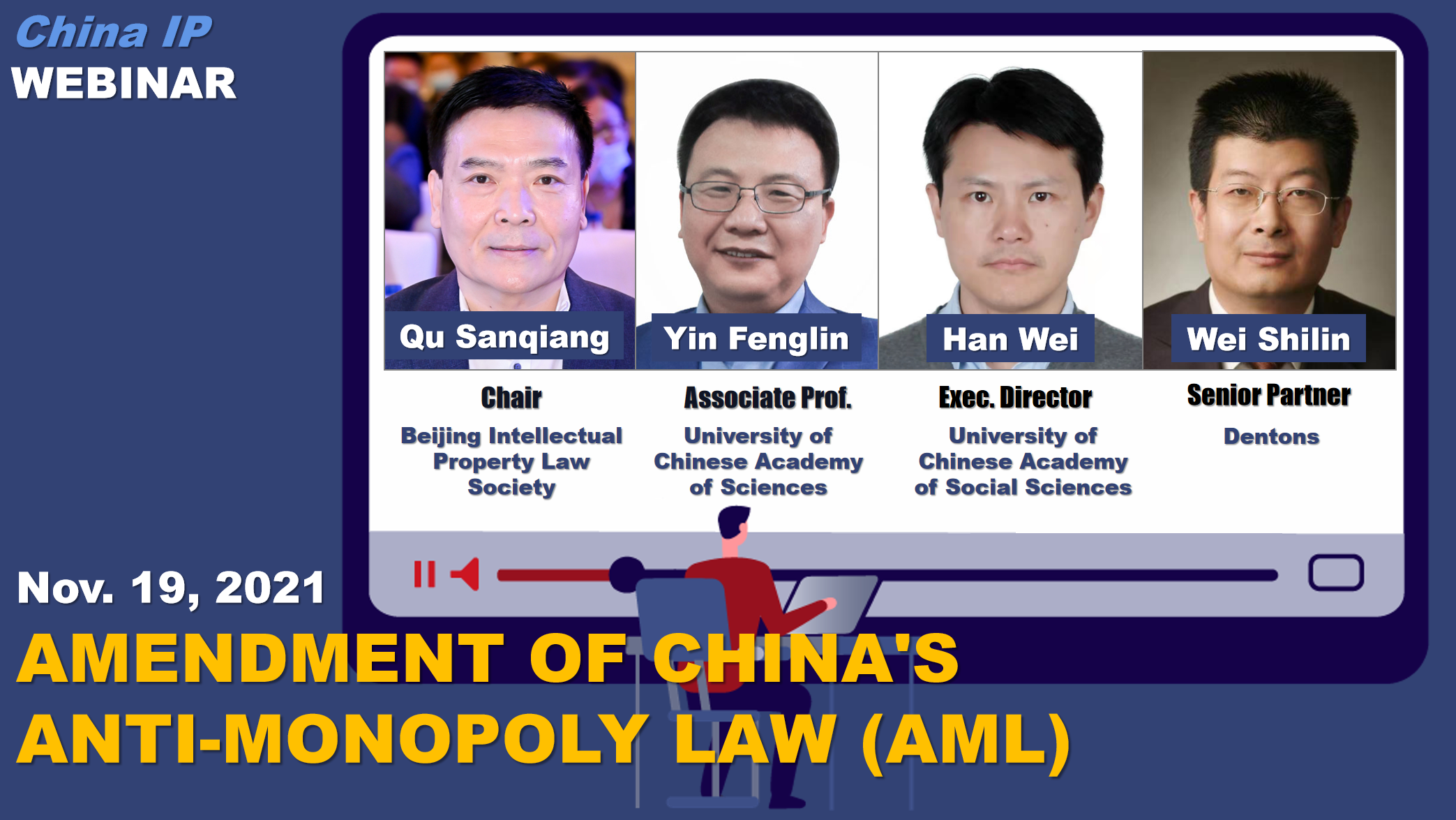
The Beijing Intellectual Property Law Society hosted on November 19 a webinar on the developments in the theories and practice concerning the amendment of China’s Anti-Monopoly Law (AML) in conjunction with the Beijing Center for Intellectual Property International Exchange and Cooperation, the Administrative Committee of the Zhongguancun Science Park (the Haidian Park), and the Zhongguancun Intellectual Property New Association. China Intellectual Property magazine sponsored and streamed the live webinar on its media platform.
China’s Standing Committee of the National People's Congress (NPCSC) reviewed the Draft Amendment to the AML on October 19 and began to solicit public comments on it on October 23. The draft is being extensively discussed between legal academics and practitioners in China.
Qu Sanqiang, Chair of the Beijing Intellectual Property Law Society and Professor of Beijing Institute of Technology, delivered an opening speech at the webinar. Qu recalled briefly the evolution of China’s AML. He defined it as part of public law, reasoning that the statutes were developed by governments to regulate unfair competitors on the market as well as governments themselves.
Yin Fenglin, Associate Professor of the Department of Law and Intellectual Property Right, School of Public Policy and Management, University of Chinese Academy of Sciences, and Director of the Competition Law Committee, Beijing Intellectual Property Law Society, served as the mediator of the two-people panel, which was made up of by Han Wei, Executive Director of Competition Law Research Center, University of Chinese Academy of Social Sciences, and Wei Shilin, Senior Partner of the Beijing Office of Dentons, and Deputy Director and Secretary-General of the Competition Law Committee, Beijing Intellectual Property Law Society.
In his speech, Han Wei covered four major categories of theoretical issues in the amendment of the AML. He noted the addition of “to encourage innovation” into the basic objectives of the Draft Amendment and mulled over the relationship between innovation and monopoly by referencing the neo-Brandeis movement in the US, the Inclusive Competition Forum in the EU, and the conflicting thoughts of Joseph Schumpeter and Kenneth Arrow. In terms of concrete regulations, he was concerned with whether the fair competition review system (FCRS) to be established falls in the category of government anti-competitive practices or market anti-competitive practices.
Wei Shilin delivered a speech on the practice perspective on the avenues and values of the amendment of the AML. He didn't deem the amendment as "overhauling", but "patching up". He contemplated the relations between administrative monopolies and the FCRS and the “rupture” between the law enforcement and the administration of justice of vertical monopoly agreements as two moot points of the Draft Amendment. In terms of the anti-monopoly activities in the industries of the internet and data, he focused on the discussion on the legal nature of China’s 1,160 or so Public Resource Trading Platforms.
The webinar’s playback is available here.
.









